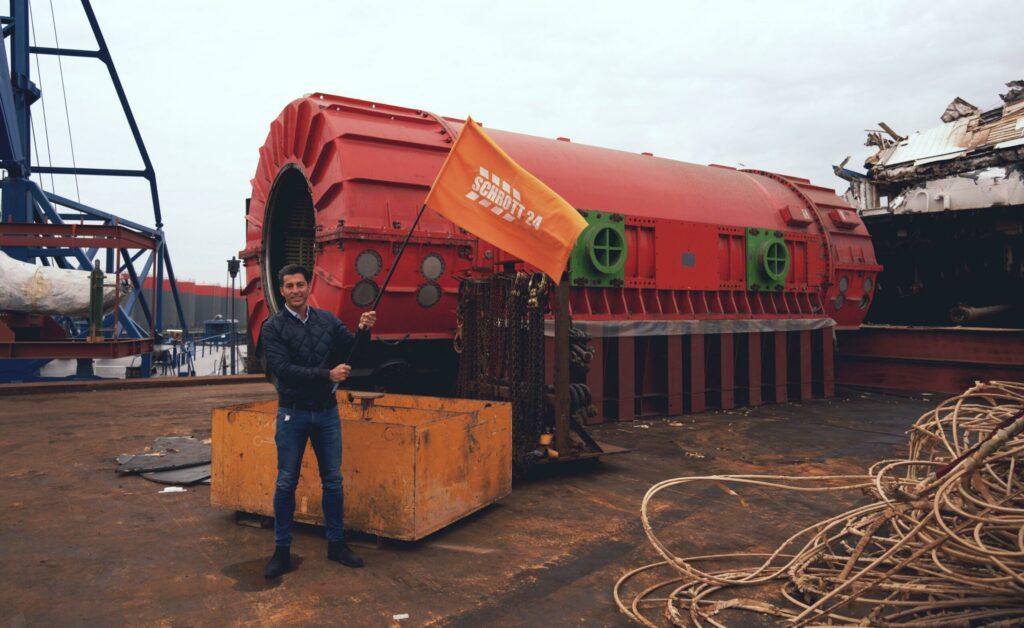NPP parts not reused for over a decade
The Mülheim-Kärlich nuclear power plant was shut down after only 30 months because it was built in an earthquake zone. However, the planned dismantling of the entire power plant as well as the reuse of the nuclear power plant parts never took place, and the NPP parts were stored temporarily for more than a decade because apparently no solution for reuse could be implemented.
“As a digital scrap dealer, we specialize in the recycling of scrap metal from industrial production,” explains Alexander Schlick, Managing Director & co-founder of Schrott24.
Here Schrott24 assumes the role of the contractual partner and not only takes care of the complete handling of the transport, but also of quality control and payment. Recently, Schrott24 has been increasingly involved in power plant and dismantling projects, such as wind power plants, aircraft, bridges and many more. The focus is on the process and revenue optimization of scrap from large projects. For this purpose, Schrott24 falls back on its Europe-wide partner network and thus finds the appropriate recycling solution for complex orders. With the help of self-developed technology, the quantities of metals offered are matched with the real-time demand of plants, recyclers and scrap dealers in the network.
Logistical challenge - dismantling and transport of about 1,500 tons of steel and copper
The generator and the other parts of the Mühlheim-Kärlich nuclear power plant are dismantled into individual parts, for example to get the valuable copper of the stator. Adhesions of plastic and other non-metallic materials are removed and then the metals are separated according to type. Finally, the 1,500 tons of steel and copper are melted down in recycling plants and thus returned to the material cycle.
“We have overused the resources of our earth and now we have to fight the climatic consequences everywhere. Used metals can be recycled as often as desired and almost 100%. Our goal is to make the scrap metal industry more efficient through digitalization and thus ultimately to bring more metal back into the material cycle”, explains Jan Pannenbäcker, Managing Director & Co-founder of Schrott24.


